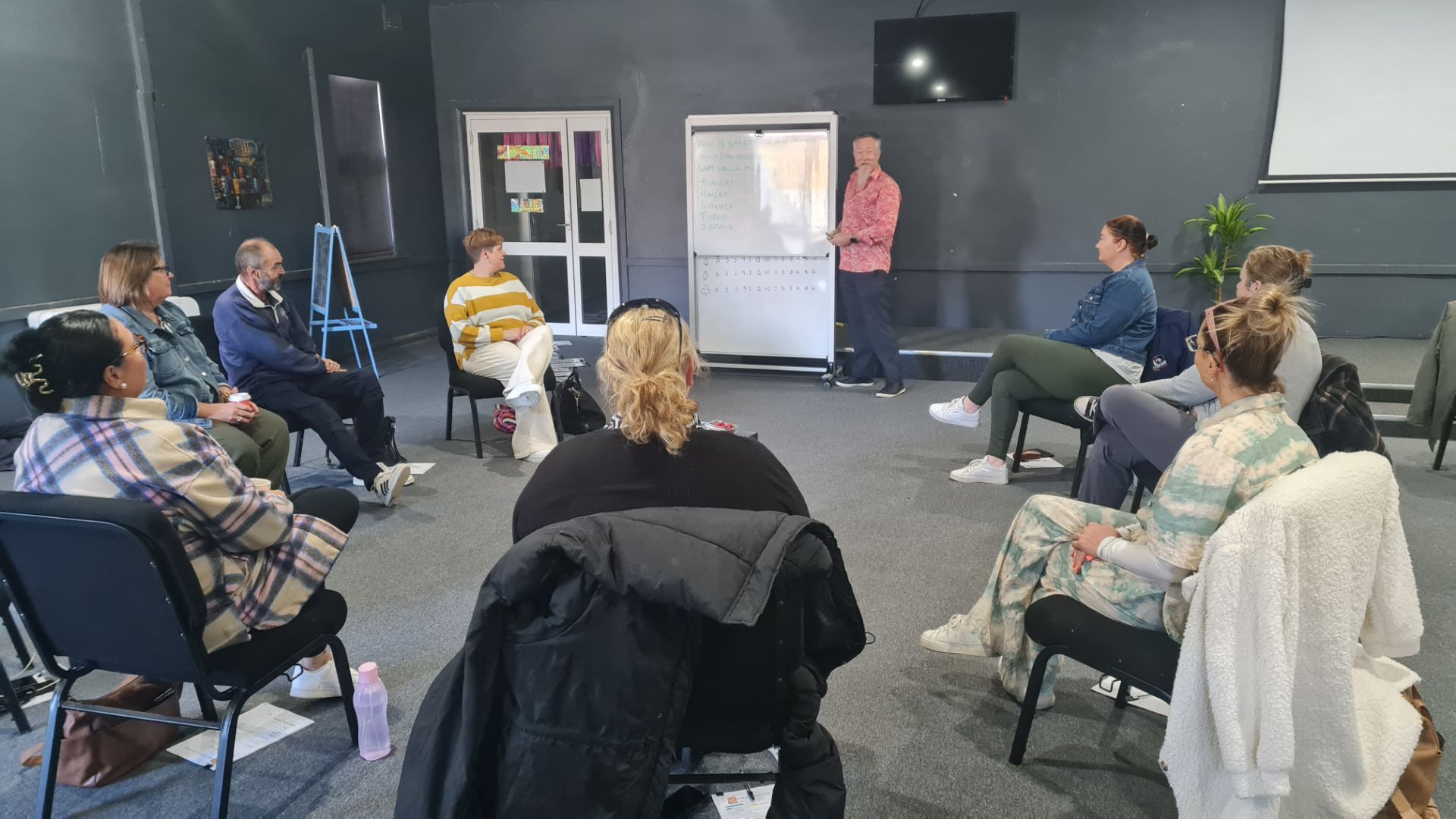Safe Relationships
Next Generation Mens Behaviour Change Program
Keystones have a vision for safe and respectful communities where women, children, men, all people and pets live with dignity, connection, personal agency and self-determination, without violence, threat or fear.
The Keystones model prides itself on the integration of government practice standards, compliance frameworks and evidence-based practice to achieve optimal standards of accountability.
Keystones offer a range of services and supports for practitioners and organisations who deliver contemporary Men’s Behaviour Change Programs, or aim to incorporate Men’s Behaviour Change into their service delivery model.
Keystones specialise in developing programs and models of intervention for Domestic, Family and Sexualised Violence that encourage safe and respectful relationships and support organisations with enhanced teams-based practice.
We offer evidence-based, organisationally tailored consultancy. This includes the Keystones Manual, a Policy Suite and program templates that meet compliance frameworks including a broad range of clinical support services. Our team offer clinical guidance that includes teams and individual supervision services and practice development that meets the expectations prescribed for best practice.
Keystones 20 weeks group work program draws upon contemporary research and mixed modality frameworks (Narrative Therapy and Cognitive Behavioural Therapy). Focusing on accountability, the immediate need for safety for victim survivors, reintegration and self-regulation from first contact to post group work.
Our practice models align with compliance standards and risk reduction and response frameworks. Delivering effective program guidance, enhanced retention rates and supporting clients with greater internal motivation to change. We offer Men’s Behaviour Change services based upon optimal service delivery principles.
The Keystone approach provides the foundations for long-term behaviour change.
Keystones offer a range of support services for current Men’s Behaviour Change Program providers and organisations who aim to deliver Mens Behaviour Change Programs.
This includes consulting with emerging provider organisations to achieve compliance to practice standards, policy integration and program design.
Keystones also support providers who aim for higher standards from their current content, and a greater level of engagement from the clients who engage in their MBC programs.
The Keystones Men’s Behaviour Change Program (MBCP) is designed for delivery with groups of men who have identified a need to address the impacts of violence, and / or abusive, coercive & controlling behaviours within their lives and relationships.
Best Practice
The Keystones framework is informed by a duty of care and safety for Men’s Behaviour Change providers, clients, staff and community.
The Keystones MBC program models all client engagements within contemporary Australian, trauma informed relational practice, including “the 6 core strengths of healthy childhood development” (Perry, 2002), Jenkins (2009) ‘parallel process’, ‘generous love’ and invitational practice (1990).
The Keystones team value an ongoing process of personal introspection.
We understand the tensions between the immediate needs of victim survivors, and the respectful engagement with men who cause harm. We embrace self reflective practice in walking the talk, MBC parallel process, practitioner and client accountability alongside generous love.
In accordance with evolving research, Keystones methodology engages with men using curiosity, invitational practice, 6 core strengths, and Narrative Therapy MBC group work processes. We hold the view that the drivers of violent, abusive and controlling behaviour are more complex than strictly a need for power and control. Since 2009 MBC researchers identify that globalisation and colonisation inform gender based abuse and violence as well as trauma, family history, thousands of years of patriarchy, violence supporting masculinities and systemic abuse from hierarchies of power. These model having needs met by using power inappropriately. (Connell, R., 2016. Keddie, A., 2022)
The outcome of this view calls for a more holistic approach and therefore offers greater opportunity to engage clients in the change process, improving engagement and retention, and supporting safety.
The Keystones program is an Australian evolution in MBC practice.

Proud Community Partners


